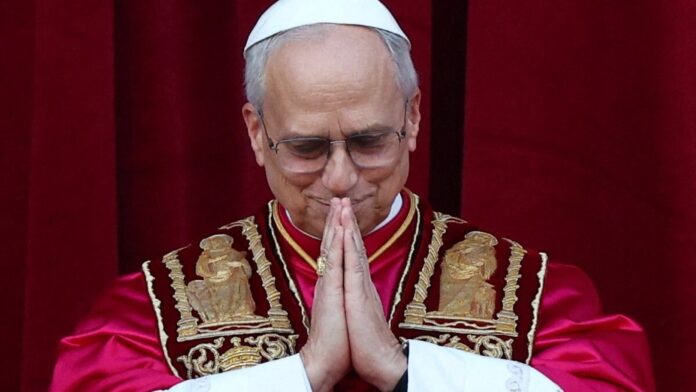Pope Leo XIV has appealed for the immediate release of more than 300 students, teachers, and church members kidnapped in two major attacks on schools in northern Nigeria. His statement, delivered at the end of the Angelus prayer at the Vatican, follows what authorities and religious bodies have described as one of the largest mass abductions in recent years.
The Pope said he received the news “with immense sadness,” noting that the victims included priests, students, and other faithful members of the Catholic Church. He expressed “deep sorrow, especially for the many young boys and girls kidnapped and for their anguished families,” and urged the world to join him in praying for their safe return.
The Christian Association of Nigeria (CAN) confirmed on Saturday that more than 300 people were taken during separate attacks carried out by armed men on two schools in Kebbi and Niger states. According to CAN, the first incident occurred on Monday when gunmen invaded a secondary school in Kebbi State and abducted 25 girls. Just days later, on Friday morning, attackers stormed St. Mary’s Co-Education School in Niger State and kidnapped hundreds of students and staff, bringing the total number of victims to roughly 315.
In response to the growing concern, the Pope called for the protection of learning and worship centres across the world. “Let us pray for these brothers and sisters of ours and that churches and schools may always and everywhere remain places of safety and hope,” he said.
The first abduction took place in Kebbi State, an area that has experienced increasing attacks from criminal gangs commonly referred to as bandits. These groups operate across many northern states, often targeting schools, commuters, and villages for ransom. The attack on the girls’ secondary school followed a familiar pattern: gunmen arrived on motorcycles, broke into the hostel area, and whisked the students away before security forces could arrive.
The second, larger attack on St. Mary’s Co-Education School in Niger State happened in the early hours of Friday. Witnesses said the gunmen surrounded the school compound, overpowered local security guards, and forced students and their teachers into waiting vehicles. Parents rushed to the school after receiving frantic calls and messages, only to meet empty classrooms and frightened staff members who had escaped by hiding.
Officials in Niger State say search-and-rescue operations are ongoing, though families remain anxious. Many parents have camped outside police stations and security posts, hoping for updates. School kidnappings in Nigeria often lead to long periods of waiting, as abductors sometimes hold hostages for weeks or months while negotiating ransom payments.
Nigeria has faced repeated waves of school kidnappings over the last decade, beginning with the 2014 Chibok abductions, which drew international attention and global condemnation. Since then, criminal gangs have increasingly targeted schools, viewing mass abductions as a quick way to pressure the government or extract ransom from families.
States like Niger, Kebbi, Zamfara, Kaduna, and Katsina have seen multiple school attacks in recent years. Despite increased military operations and security patrols, the gangs continue to strike, often taking advantage of remote locations and limited police presence.
Security experts say poverty, weak policing, and the availability of weapons in the region all contribute to the growing kidnapping industry. Many communities in the affected states remain vulnerable, as schools are often unprotected and sometimes located far from major towns.
The Christian Association of Nigeria condemned the latest attacks and urged the federal and state governments to take stronger action. According to CAN, the repeated targeting of schools threatens Nigeria’s future by discouraging children from attending classes.
CAN also praised the Pope’s intervention, saying his message would amplify the plight of the victims and put international pressure on Nigerian authorities to act swiftly.
Parents of the abducted students have also spoken out, calling for immediate government intervention. Many say they fear for their children’s safety, especially after past cases where kidnapped students were injured, traumatised, or even killed.
Although officials in both Kebbi and Niger States have confirmed the attacks, detailed responses from the federal government are still awaited. Security forces have launched search missions, but they face challenges such as dense forests and the mobility of the kidnappers.
In recent years, the government has introduced several measures, including school security guidelines and community policing efforts, but many rural schools remain poorly protected.
For now, families continue to wait anxiously as security agencies work to trace the abductors’ location. Many Nigerians hope that global attention, combined with local pressure, will help bring the victims home unharmed and push authorities to strengthen school security across the country.

